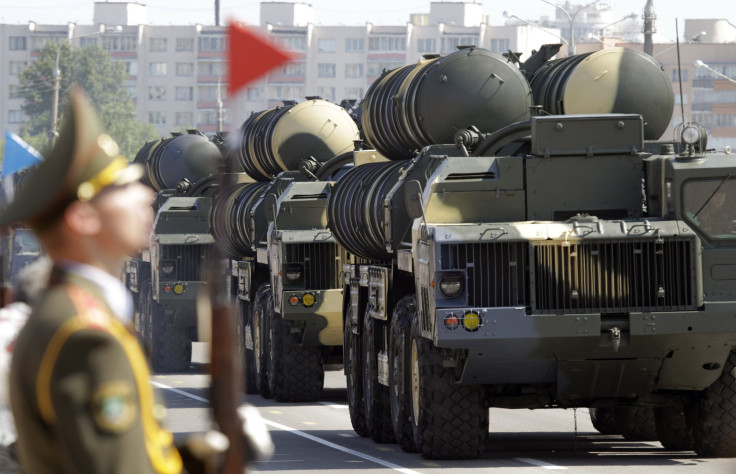Russian Military Weapons To Iran? S-300 Missile Defenses Being Modernized By Moscow To Deliver To Tehran

Russia is reportedly modernizing its S-300 missile defense system in hopes of delivering the technology to Iran, the head of a large Russian arms exporter said Tuesday, according to the Russian news agency Sputnik. The news comes as the world prepares to lift international sanctions on Iran following a nuclear deal worked out in July with several world powers.
Russian President Vladimir Putin signed a decree in April allowing a tabled contract over the S-300 missiles to proceed, as international negotiators made progress in developing a framework for ending a years-long stand off with Iran over its nuclear energy program. Russia and Iran had signed an $800 million deal for the delivery of five S-300 battalions in 2007, but Russia suspended the contract, citing the Security Council-imposed sanctions. Four years later, Iran sued the Russian defense company Rosobornexport in Geneva. The $4 billion lawsuit will be dropped in exchange for the S-300 missile system.
Top Russian #weapons for sale: export bestsellers and key buyers https://t.co/kFKy8PUjLR #military pic.twitter.com/86m5eodTsJ
— Sputnik (@SputnikInt) October 27, 2015
The S-300 includes a range of high-capability, long-range surface-to-air missiles. It was first used by the Soviet Union in 1979, but has been modified and updated over the years. They can be used to target aircrafts and engage ballistic missiles. Russia has also sold the defense technology to China in the past.
The Iran nuclear deal has stoked fears among regional adversaries that lifting sanctions will embolden Iran and allow it to build up its military. The deal, reached in July between Iran, the U.S. and five other major world powers, requires that Iran commit itself to scaling back uranium enrichment. In advance of sanctions relief, Saudi Arabia has ramped up its military spending, even as the country faces a significant budget deficit. Last week, the U.S. State Department agreed to sell Saudi Arabia up to four littoral combat ships for some $11 billion.
Sanctions will only be lifted once inspections have confirmed Iran has begun self-enforcing restrictions on its nuclear program. The sanctions are likely to be lifted early in 2016, several Western diplomats familiar with nuclear monitoring told Bloomberg.
© Copyright IBTimes 2024. All rights reserved.





















